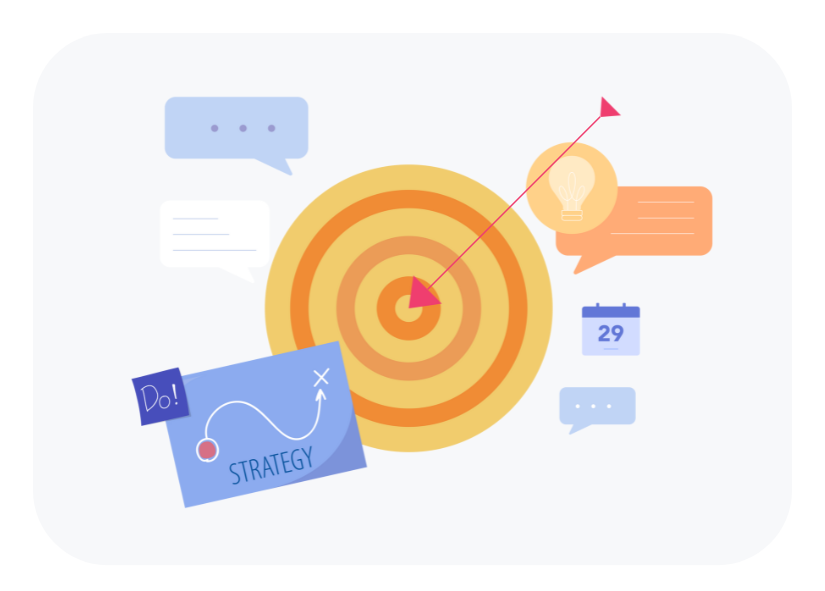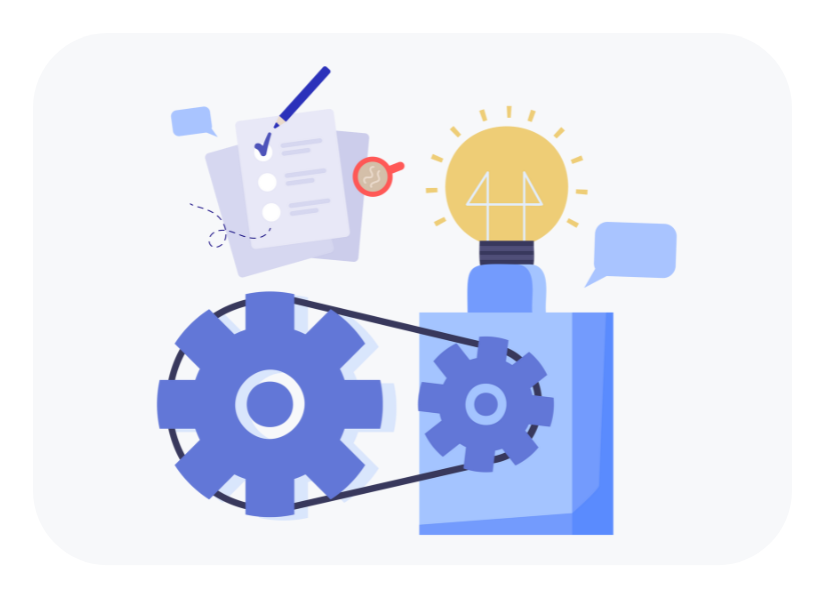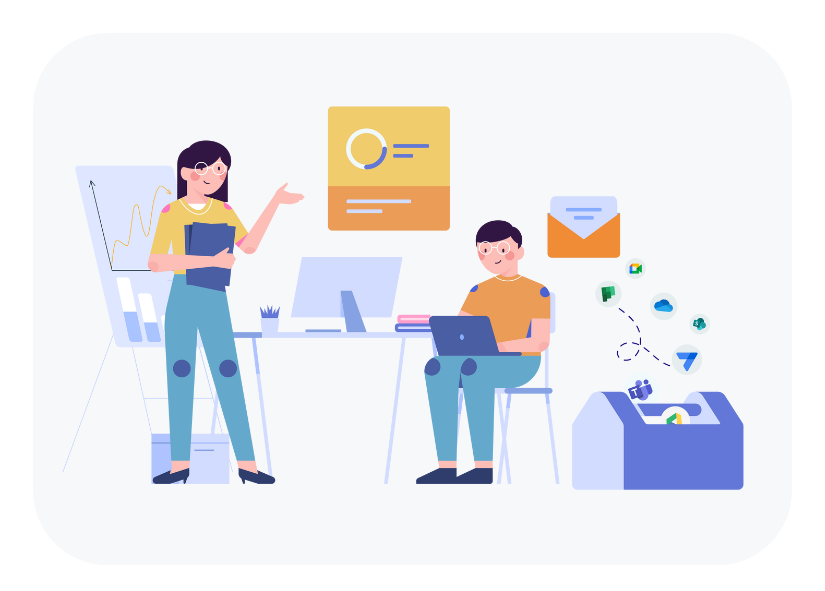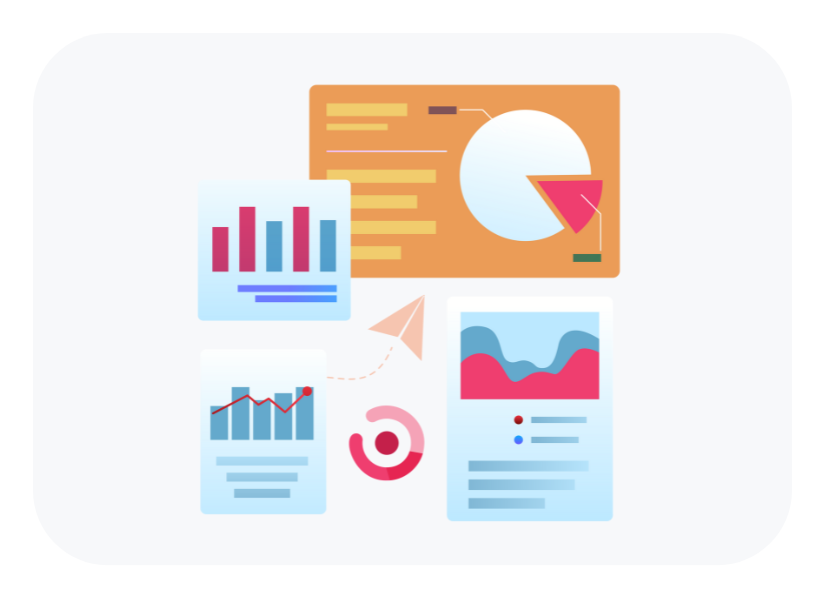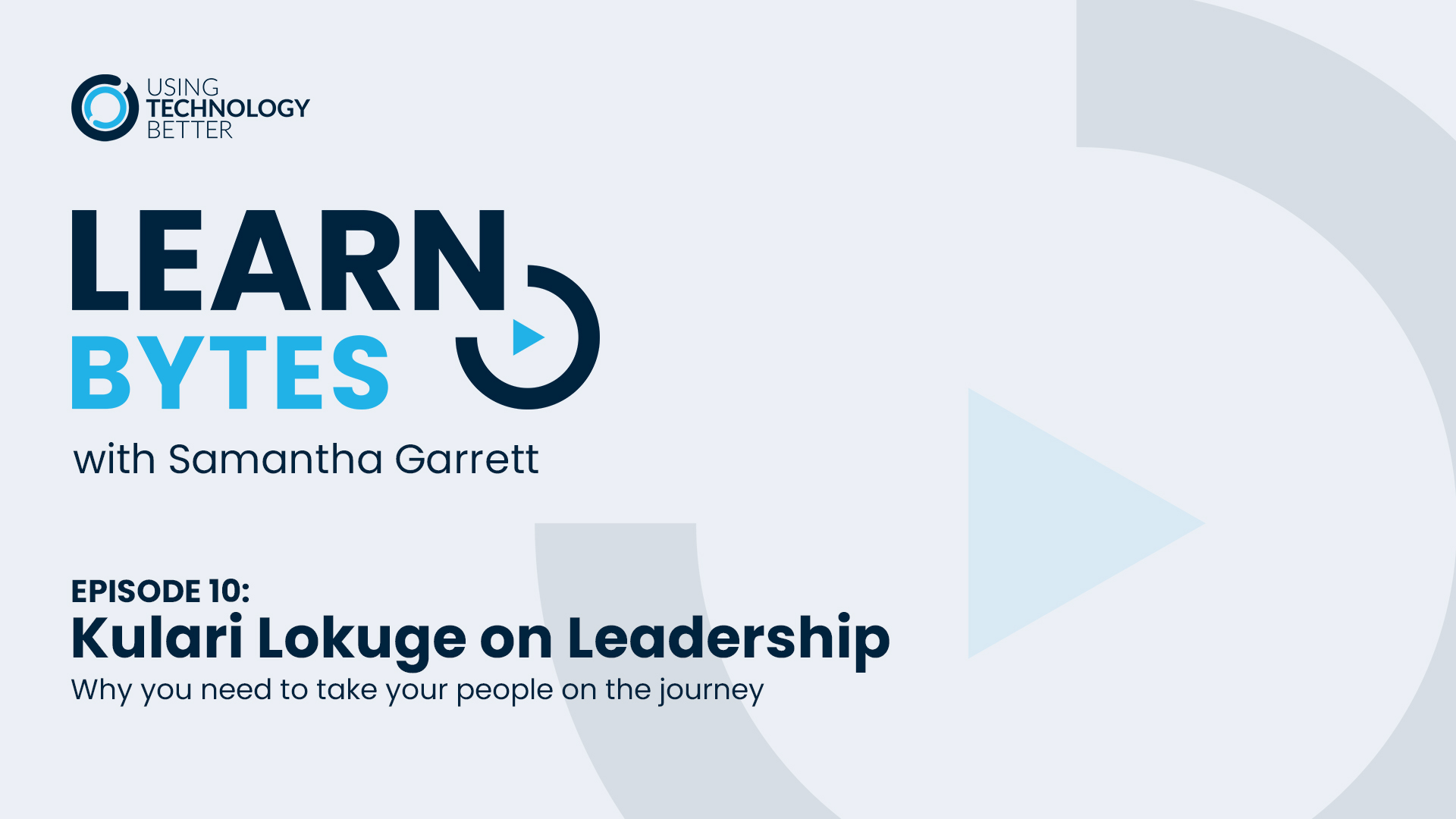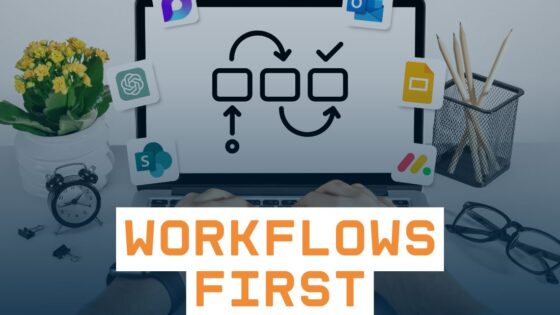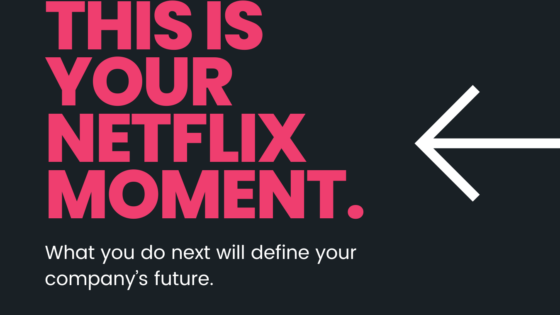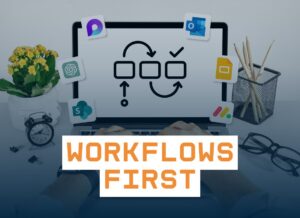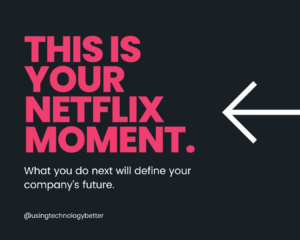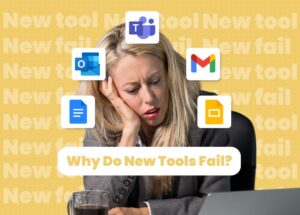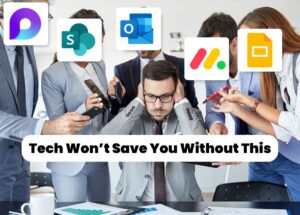Get notified of future episodes: YouTube playlist | Apple Podcasts | Stitcher | Spotify | Google Podcasts | iHeartRadio
Connect with the show on Instagram: @LearnBytes
In this episode
Samantha is joined by Kulari Lokuge, the Director at the Knox Innovation Opportunity & Sustainability Centre (KIOSC) at Swinburne University of Technology.
In her race against the clock, Kulari shares why it is so important for leaders to take their people on a journey, while keeping an eye on the long view. We also hear her thoughts on dealing with uncertainty…which has something to do with how you get a round peg into a square hole!
You can connect with Kulari on LinkedIn (https://www.linkedin.com/in/klokuge/) and learn more KIOSC’s programs for students at https://www.kiosc.vic.edu.au/
Links from the episode
Kulari recommends Rules of Belonging by Fiona Robertson.
Also books by Robin Sharma books, Steven Covey, Dale Carnege and Jack Canfield.
Sign up for our newsletter, packed full with strategies to help you live your most efficient, productive & organised life.
https://utb.fyi/join-newsletter
Watch it now
Transcript
Samantha 0:03
Hello there and welcome to LearnBytes, the show that delivers byte-sized pieces of wisdom so you can increase your efficiency and productivity, embrace your natural creativity and lead with impact. I’m Samantha Garrett from Using Technology Better and joining me today to share their wisdom is Kulari Lokuge. Welcome Kulari!
Kulari 0:23
Hello.
Samantha 0:24
Thanks for joining us. I’m super excited to have you here. So Kulari is a passionate educator, educational leader, actually and the director at the Knox Innovation, Opportunity and Sustainability Center at the Swinburne University of Technology. That’s a very impressive sounding centre Kulari, I’m excited to hear more about what it is and what it does. So, before we get into that, so Kulari is going to share her wisdom on leadership, which I’m very much looking forward to. But before we start that Kulari, did you just want to share a little bit about yourself maybe about KIOSC so we can demystify what that is, and also what you’re passionate about.
Kulari 1:04
Yeah, thank you Sam. KIOSC is a very interesting place. It has a lot of technology. It brings the local students from schools, secondary schools mainly, into the center, to inspire them to use technology to solve, identify and solve. That’s how I put it, identify and solve problems in the real world, which aligns to science, engineering, technology and mathematics. So it’s a building full off new tech. Very exciting.
Samantha 1:43
Sounds super fun. And it is based in Melbourne, I didn’t say that. So when lockdown is over, one day, I’m gonna have to come and see this exciting building full of tech. So what led you there Kulari, what are you passionate about?
Kulari 1:59
It’s actually very interesting concept of, rather than individual school, getting little bit of money to do something, multiple schools come together to do big things. What led me there is starting, so I have worked in multiple levels of education, in the education system. And this is starting at the right level, years, six years, seven, all the way up to year 12. That’s the time you either make it or break it in the hearts and the minds of young children to be take up these lovely opportunities that’s around around us across the world. So it’s a borderless studying, I would call it
Yeah. Excellent. And have you been in education your whole career, is that like, what drew you to education as a as a career, I guess.
I have been in education for most of my life, but my background is software engineering and I started off as a systems engineer type of thing, but at the same time, I got a teaching opportunity. And that is a very, you know, there are different ways that you can give back. That’s a very lovely way to give back. It’s, I always think it’s not just one person, that person will deliver or communicate that to other people. And as a child, I always looked up for at my teachers. And so what a great thing that they’re doing, but I never intended to become a teacher. But it’s so, I love it. Love it at the moment.
Samantha 3:42
That’s it’s a really lovely point, isn’t it? It is just not affecting one person. It’s that onward thing into the community and a family and yeah, that’s lovely. Well, thanks for setting the scene for us. I’m excited to hear what you’ve got to say on leadership, so as you know, bite sized pieces of wisdom, which means we use a timer. So you’ve got four minutes, eight questions. Are you ready to race the clock and see how we go.
Kulari 4:04
Let’s go.
Samantha 4:06
And if you beat the clock, if we’ve got time left at the end, you can ask me a question or sometimes I just ask more, we’ll see how we go at the end. Alright, so I’m gonna pop it on. I’ll click start and we will go. First mobile phone and current phone?
Kulari 4:22
My first mobile phone was a Nokia. Right now I have an iPhone 8 and a Samsung S 8.
Samantha 4:30
Two. Ooh impressive, okay. What is the most important quality for every leader to have?
Kulari 4:39
To have an optimistic and a clear long vision which with which I think you empower other people because you can have a vision and if there’s no one to do it, then it’s not right. Generally, as a leader, I think daily tasks can be challenging, sometimes frustrating. But if you kind of get over that frustration and look for the long view, and keep a good eye on the long view or the end goal with a positive attitude, you are building a strong group of people who will have that triple impact on society. So, as long as you have that view, and you don’t get too frustrated, you do get frustrated, but not too frustrated. And you take your people with you, because you can’t do it all by yourself, you have to have your people walking with you understanding, having a good understanding about the whole thing.
Samantha 5:47
What do you find most rewarding or most challenging about being a leader?
Kulari 5:52
Most rewarding is having that impact on people’s lives. Changing that view about education, giving an education, which always make a long term impact on them itself, because that has a lot like I said earlier, social impact, not just one person, it’s a family then maybe a small village, maybe a city. That’s how we call it the world, right? You start it small with one person and he builds to a big world.
Samantha 6:33
What’s one thing you tell yourself when facing uncertainty?
Kulari 6:37
Well, I think it’s generally, we haven’t figured out the solution. It’s somewhere there, it’s just that look outside the box. You know, we sometimes say you can’t plug a round into a square, I think you can because you can cut half of it. And if you make one piece rounded. So it’s that uh, optimism. Look outside, go and, go and collaborate with people, persevere. And all that is important. It’s not just one thing. Yes, uncertainty, like the times that we’re going through. But there are solutions, there are ways that you can make the best out of it.
Samantha 7:25
Biggest leadership lesson learned so far?
Kulari 7:30
Take your people on the journey, while keeping an eye on the long view. That’s my thing. Because if you can be the best author, you can be the best writer, best whoever, software engineer, but can I build a system by myself? If I don’t bring my people on the journey, I’m a loner. So I need to, biggest lesson, I learnt it through my mentors, through my previous directors that bring the hearts and the minds of people and bring them on the journey chair.
Samantha 8:11
You’ve got seven seconds, if there was one person you could spend an hour with, who would it be and why?
Kulari 8:16
So I would call someone who is related to a spiritual thing. It could be Gandhi or Buddha. Because they have done quite a lot of things in a very innocent way. That transformation is immense. That’s something that I think is really important to be there quietly, make the change.
Samantha 8:42
Lovely. And you know what we’ve run out of time, but I’m just going to, because this is my show, I can do whatever I like, right. So I want to ask the seventh question. I won’t stretch the friendship with the viewers and go to full eight because we have run out. But I really want to know your favorite book, video, or podcast that you’d recommend to others, because that’s my favorite part of the show.
Kulari 9:01
That’s a hard question to be honest, because I read widely, and I’ve watched, I’m a YouTube addict I would call it, every night I would watch something. So I read, most probably have read all Robin Sharma’s books, Stephen Covey’s book, Dale Carnegie’s book, Jack Canfield. My house is full of books.
Samantha 9:27
That sounds awesome. Those authors, I will put all of them below and people can have a quick look at the different things that you think you recommend. And if there’s a specific book too, people watching, we’ll pop that in the notes. So, because that’s always where I get my reading list from so I can’t miss that one.
Kulari 9:42
One thing I have to say my last book that I read was the most recent one, Rules of Belonging by Fiona Robertson, that’s a cultural change. That’s a very, very new book. So that’s something that I read very recently.
Samantha 9:47
Rules of Belonging. Okay, lovely, we’ll definitely pop that one in the notes. Awesome, thank you. The time goes so quickly, doesn’t it?
Kulari 10:03
I know,
Samantha 10:05
I kind of looked at went, oh my gosh, I better give you a warning. And then I was like, oh, but she’s mid-stream. But we got there. So that’s awesome. So thank you. And I just want to reflect, lots of really useful things you said one of them was around taking people on the journey with you, and you use a particular phrase, that what the image that came to my mind was, as a leader, we often think of a leader and a follower, as in, I would be walking behind the leader, but the term you use made me think of the leader and the people that they’re working with working, walking together.
Would you say that’s an accurate interpretation? Or did I get that wrong?
Kulari 10:41
Yeah, it’s like, take take them on the journey is almost like, there is no…so if so the picture that I have is everybody like, you know, kindergarten kids, they all join their hands around, and then they walk together. That’s what I call it, walking, take them on the journey. It’s not like, okay, on the set, and it’s not that bad. Yeah, you walk with them. But you have a vision, and you know, where you’re going, you’re not going to put them into potholes and all sorts of things. You are walking you have to
Samantha 11:17
Know where you’re walking.
Kulari 11:20
In fact, it’s not like, like, you know, exactly, it’s like that leader, board leader, or you’re guiding everyone, but you might get onto certain bumbs and certain hills, but still, you know, that it can be something that you can do with them. So that’s, I mean, that’s, that’s how I look at it.
Samantha 11:41
Which probably also comes back to your thought around, I love that fitting the round peg in the square hole, which is, I was just like, that makes so much sense. I think, to me that is it. Like there’s always a solution. And often what the solution is that we change something like, we cut that peg in half, and we’ll get it in that hole. So that is wisdom that people can take away from today’s show. Like think about how you can cut the peg, because it can probably go in the hole one way or another. Now it is always worth considering should it go in the hole. Anyway, I just wanted to say I love that. So.
Kulari 12:19
Oh, dear.
Samantha 12:20
Thank you so much Kulari, I really appreciate you sharing with us. And um, where can people find you? Or where can they find more about KIOSC if they’re Melbourne base. And maybe they’ve got students that they want to bring down if they’re an educator, or where they can find you and connect with you.
Kulari 12:38
So yeah, so personally with me, I’m on LinkedIn, I look at LinkedIn connections, not everyday, but like, regularly enough. In terms of KIOSC, yes, KIOSC has a website kiosc.edu.edu that has a lot of details about the programs if it is a teacher who likes to run a program at the moment we are running a lot of virtual sessions.
Samantha 13:03
Oh, good.
Kulari 13:04
They’ve gone, they’ve gone virtual.
Samantha 13:07
Fantastic. So does that mean um, people from the rest of Australia could take or New Zealand could take part as well as it still just Victoria based?
Kulari 13:14
We can, we can, we can easily do Victoria, because it’s government funded which is all good, the rest of the country, yes, we can talk to them. We can we can do after 2:30 or something like that. Yeah, yeah, there is, there are opportunities I’m actually talking to Swinburne about it, because we have campuses across other countries, we are thinking how we can help each other.
Samantha 13:42
Yeah, that’s great. And I just totally put you on the spot with that completely unprepared question. But I do know we do have quite a few educators that watch the show and I was thinking like that might be something they’re interested in, like, because that’s one thing I have found in my work is that the virtual environment that we’re experiencing now opens up opportunities for people because we’re not dependent on location. So yeah, lovely. So, totally threw you off track, but we will definitely put all the details to that below. Wonderful. So thank you again, Kulari for sharing your time.
Kulari 14:14
Thank you for having me, it’s a pleasure.
Samantha 14:18
So. Um, there you go. If you have enjoyed the conversation that I’ve had today and you’d like to see more like this, be sure to subscribe to the Using Technology Better YouTube Channel, or if you’re listening to the podcast version, if you follow the show, then you’ll get notified when we have new episodes available. Now also, every fortnight I send out a friendly little Hello via a newsletter. It’s all about productivity, efficiency and organisation. So if they’re things you want more of in your life, then you can sign up to the newsletter below and I will reach out to you very soon. All right, so we are done for today but I will see you again soon for another bite sized piece of the learning adventure that is life . See you then.
LearnBytes is brought to you by Using Technology Better, we’re all about tech training delivered differently. If you want to solve your tech frustration and become more confident, efficient and productive with the tools you use every day, then head on over to usingtechnologybetter.com to get the training you need to be awesome.
